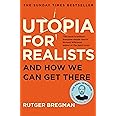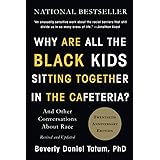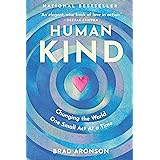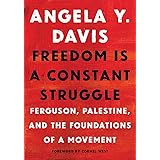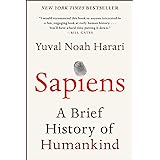
Enjoy fast, free delivery, exclusive deals, and award-winning movies & TV shows with Prime
Try Prime
and start saving today with fast, free delivery
Amazon Prime includes:
Fast, FREE Delivery is available to Prime members. To join, select "Try Amazon Prime and start saving today with Fast, FREE Delivery" below the Add to Cart button.
Amazon Prime members enjoy:- Cardmembers earn 5% Back at Amazon.com with a Prime Credit Card.
- Unlimited Free Two-Day Delivery
- Streaming of thousands of movies and TV shows with limited ads on Prime Video.
- A Kindle book to borrow for free each month - with no due dates
- Listen to over 2 million songs and hundreds of playlists
- Unlimited photo storage with anywhere access
Important: Your credit card will NOT be charged when you start your free trial or if you cancel during the trial period. If you're happy with Amazon Prime, do nothing. At the end of the free trial, your membership will automatically upgrade to a monthly membership.
Buy new:
-41% $17.68$17.68
Ships from: Amazon.com Sold by: Amazon.com
Save with Used - Acceptable
$12.54$12.54
Ships from: Amazon Sold by: RNA TRADE LLC





Download the free Kindle app and start reading Kindle books instantly on your smartphone, tablet, or computer - no Kindle device required.
Read instantly on your browser with Kindle for Web.
Using your mobile phone camera - scan the code below and download the Kindle app.

Image Unavailable
Color:
-
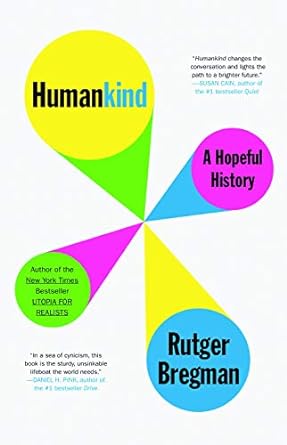
-
-
- To view this video download Flash Player
-

-

-

-
 3 VIDEOS
3 VIDEOS -

 Audible sample Sample
Audible sample Sample 


Follow the authors
OK
Humankind: A Hopeful History Hardcover – Illustrated, June 2, 2020

Explore your book, then jump right back to where you left off with Page Flip.
View high quality images that let you zoom in to take a closer look.
Enjoy features only possible in digital – start reading right away, carry your library with you, adjust the font, create shareable notes and highlights, and more.
Discover additional details about the events, people, and places in your book, with Wikipedia integration.
Purchase options and add-ons
The “lively” (The New Yorker), “convincing” (Forbes), and “riveting pick-me-up we all need right now” (People) that proves humanity thrives in a crisis and that our innate kindness and cooperation have been the greatest factors in our long-term success as a species.
If there is one belief that has united the left and the right, psychologists and philosophers, ancient thinkers and modern ones, it is the tacit assumption that humans are bad. It's a notion that drives newspaper headlines and guides the laws that shape our lives. From Machiavelli to Hobbes, Freud to Pinker, the roots of this belief have sunk deep into Western thought. Human beings, we're taught, are by nature selfish and governed primarily by self-interest.
But what if it isn't true? International bestseller Rutger Bregman provides new perspective on the past 200,000 years of human history, setting out to prove that we are hardwired for kindness, geared toward cooperation rather than competition, and more inclined to trust rather than distrust one another. In fact this instinct has a firm evolutionary basis going back to the beginning of Homo sapiens.
From the real-life Lord of the Flies to the solidarity in the aftermath of the Blitz, the hidden flaws in the Stanford prison experiment to the true story of twin brothers on opposite sides who helped Mandela end apartheid, Bregman shows us that believing in human generosity and collaboration isn't merely optimistic—it's realistic. Moreover, it has huge implications for how society functions. When we think the worst of people, it brings out the worst in our politics and economics. But if we believe in the reality of humanity's kindness and altruism, it will form the foundation for achieving true change in society, a case that Bregman makes convincingly with his signature wit, refreshing frankness, and memorable storytelling.
"The Sapiens of 2020." —The Guardian
"Humankind made me see humanity from a fresh perspective." —Yuval Noah Harari, author of the #1 bestseller Sapiens
Longlisted for the 2021 Andrew Carnegie Medal for Excellence in Nonfiction
One of the Washington Post's 50 Notable Nonfiction Works in 2020
- Print length480 pages
- LanguageEnglish
- PublisherLittle, Brown and Company
- Publication dateJune 2, 2020
- Dimensions6.25 x 1.5 x 9.5 inches
- ISBN-100316418536
- ISBN-13978-0316418539
Frequently bought together
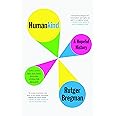
Similar items that may ship from close to you
 People are social animals, but we have a fatal flaw: we feel more affinity for those who are most like us.Highlighted by 1,511 Kindle readers
People are social animals, but we have a fatal flaw: we feel more affinity for those who are most like us.Highlighted by 1,511 Kindle readers Dmitri Belyaev’s theory was that people are domesticated apes. That for tens of thousands of years, the nicest humans had the most kids. That the evolution of our species, in short, was predicated on ‘survival of the friendliest’Highlighted by 1,335 Kindle readers
Dmitri Belyaev’s theory was that people are domesticated apes. That for tens of thousands of years, the nicest humans had the most kids. That the evolution of our species, in short, was predicated on ‘survival of the friendliest’Highlighted by 1,335 Kindle readers If there’s one lesson to be drawn from the nocebo effect, it’s that ideas are never merely ideas. We are what we believe. We find what we go looking for. And what we predict, comes to pass.Highlighted by 1,261 Kindle readers
If there’s one lesson to be drawn from the nocebo effect, it’s that ideas are never merely ideas. We are what we believe. We find what we go looking for. And what we predict, comes to pass.Highlighted by 1,261 Kindle readers The sad truth is that empathy and xenophobia go hand in hand. They’re two sides of the same coin.Highlighted by 1,140 Kindle readers
The sad truth is that empathy and xenophobia go hand in hand. They’re two sides of the same coin.Highlighted by 1,140 Kindle readers So what is this radical idea? That most people, deep down, are pretty decent.Highlighted by 901 Kindle readers
So what is this radical idea? That most people, deep down, are pretty decent.Highlighted by 901 Kindle readers
From the Publisher
|
|
|
|
|---|---|---|
|
|
|
|

|
|
|
|
|---|---|---|
|
|
|
|
Editorial Reviews
Review
"Some books challenge our ideas. But Humankind challenges the very premises on which those ideas are based. Its bold, sweeping argument will make you rethink what you believe about society, democracy, and human nature itself. In a sea of cynicism, this book is the sturdy, unsinkable lifeboat the world needs."―Daniel H. Pink, #1 New York Times bestselling author of When and A Whole New Mind
"I greatly enjoyed reading Humankind. It made me see humanity from a fresh perspective and challenged me to rethink many long-held beliefs. I warmly recommend it to others, and I trust it will stir a lot of fruitful discussions."―Yuval Noah Harari, #1 New York Times bestselling author of Sapiens and 21 Lessons for the 21st Century
“A lively social history... Bregman offers a compelling case for reshaping institutions and policies along genuinely humane lines.”―The New Yorker
"Rutger Bregman's extraordinary new book is a revelation. Although Humankind is masterful in its grasp of history, both ancient and modern, the real achievement is Bregman's application of history to a new understanding of human nature. Humankind changes the conversation and lights the path to a brighter future. We need it now more than ever."―Susan Cain, author of the #1 New York Times bestseller Quiet
“As Bregman shows very convincingly in this book, we are not the selfish species we think we are and civilization is not a thin layer of veneer that will crack as soon as put to the test… The main message: it is time for a new realism based on believing the fact that humans are good.”―Jeroen Kraaijenbrink, Forbes
"Bregman's argument is simple but radical: Most people are good, and we do ourselves a disservice by thinking the worst of others. Bregman argues that believing in human kindness is a foundation for lasting social change."―Barbara VanDenburgh, USA Today
"Bregman puts together a compelling argument that society has been built on a false premise... He has a Gladwellian gift for sifting through academic reports and finding anecdotal jewels... Bregman never loses sight of his central thesis, that at root humans are 'friendly, peaceful, and healthy'... There's a great deal of reassuring human decency to be taken from this bold and thought-provoking book and a wealth of evidence in support of the contention that the sense of who we are as a species has been deleteriously distorted... It makes a welcome change to read such a sustained and enjoyable tribute to our better natures."―Andrew Anthony, The Guardian
"Rutger Bregman is out on his own, thinking for himself, using history to give the rest of us a chance to build a much better future than we can presently imagine."―Timothy Snyder, #1 New York Times bestselling author of On Tyranny and Bloodlands
“Humankind is an enjoyable and thought-provoking read, one whose bold argument has potentially far-reaching implications for how we run our governments, workplaces, schools, and correctional facilities… Bregman is not naive; he grounds his arguments in reassessments of historical events and in studies from the sciences and social sciences… [and] debunks a number of long-held beliefs… Bregman presents his findings in a chatty, engaging style that evokes Malcolm Gladwell.”―Barbara Spindel, Christian Science Monitor
"Rutger Bregman is one of my favorite thinkers. His latest book challenges our basic assumptions about human nature in a way that opens up a world of new possibilities. Humankind is simple, perceptive and powerful in the way that the best books and arguments are."―Andrew Yang, former US Presidential candidate and New York Times bestselling author of The War on Normal People
"Fascinating... Convincing... After cogently laying out the problem, Bregman turns to solutions... He describes businesses without bosses, schools in which teachers assume that students want to learn, and local governments in which citizens exert genuine power wisely... A powerful argument in favor of human virtue."―Kirkus (starred review)
"Rutger Bregman has written another great book. He looks at some off the famous sociological experiments of the twentieth century-those that claimed to show humans as self-interested, cowardly, and morally fickle-and discovers that they were engineered to produce exactly those results. There was a lot of prejudice and ideological manipulation going on to get us to think so badly of ourselves. Every revolution in human affairs---and we're in one right now!---comes in tandem with a new understanding of what we mean by the word 'human.' Bregman has succeeded in reawakening that conversation by articulating a kinder view of humanity (with better science behind it). This book gives us some real hope for the future."―Brian Eno
“International bestseller Rutger Bregman provides a fresh, new and engaging perspective on human history and where we can go as a society and species if we change our belief from 'all humans are inherently bad' to 'all humans are innately kind.' Humankind: A Hopeful History takes readers through historical accounts proving that we are in fact hardwired for kindness and is a read that will lift your spirits at a much-needed time in today's climate.”―CNN
"This stunning book will change how you see the world and your fellow humans. Humankind is mind-expanding and, more important, heart-expanding. We have never needed its message more than now."―Johann Hari, New York Times bestselling author of Lost Connections and Chasing the Scream
"Cynicism is a theory of everything, but, as Rutger Bregman brilliantly shows, an elective one---so totalizing it clouds our picture of human life and constricts our capacity to imagine, and enact, better futures. This necessary book widens that aperture of possibility, and radically."―David Wallace-Wells, New York Times bestselling author of The Uninhabitable Earth
"Humankind is an in-depth overview of what is wrong with the idea is that we humans are by nature bad and unreliable. In vivid descriptions and stories, Rutger Bregman takes us back to the questionable experiments that fed this idea and offers us a more optimistic view of mankind."―Frans de Waal, New York Times bestselling author of Are We SmartEnough to Know How Smart Animals Are? and Mama's Last Hug: AnimalEmotions and What They Tell Us About Ourselves
“In a world of sophisticated pessimism, Humankind is a refreshing change . . . Twenty-first-century readers are short on prophets, especially the optimistic kind, and will give Bregman a cheerful hearing.”―The Economist
"Why are most of us willing to sacrifice our wellbeing to protect vulnerable people we've never met? The most coherent, well-proven answer can be found in Humankind... Bregman's book summarizes a mountain of new discoveries in a wide range of fields that debunk what we thought we knew about humanity... It takes you on his personal journey, from believing (and teaching) many of society's shibboleths about inherent evil to systematically tearing each one apart with evidence."―Chris Taylor, Mashable
"Compelling... Humankind is an amazing book--thoughtful, engaging, optimistic, and true... It shows us how much where we start our thinking about human nature influences where we finish, even when where we start is dead wrong. Put aside your newspaper for a little while and read this book."―Barry Schwartz, author of the national bestseller The Paradox of Choice
"An extraordinarily powerful declaration of faith in the innate goodness and natural decency of human beings. Never dewy-eyed, wistful or naive, Rutger Bregman makes a wholly robust and convincing case for believing---despite so much apparent evidence to the contrary---that we are not the savage, irredeemably greedy, violent and rapacious species we can be led into thinking ourselves to be. Hugely, highly and happily recommended."―Stephen Fry, author of Mythos and The Ode Less Travelled
"I know of no more powerful or carefully documented rejoinder to Machiavelli's observation that 'men never do anything good except out of necessity' than Rutger Bregman's book. His reassessment of human nature is as faithful to the actual evidence as it is uplifting."―Sarah Blaffer Hrdy, one of Discover Magazine's 50 Most Important Women in Science and author of Mothers and Others: The Evolutionary Origins of Mutual Understanding
"Bregman's previous work made a strong case for utopian policies like universal basic income. Humankind provides the philosophical and historical backbone to give us the confidence that such bold policies---underpinned by cooperation, not competition---are the right kinds of policies. Why? Because people are inherently good and altruistic. Understanding this fundamental point creates the spirit and the tools to collaborate, be kind, and trust each other to create a better society. The positive and uplifting message in Humankind is essential if we are ever going to create a better form of capitalism where the many, not the few, can flourish."―Mariana Mazzucato, author of The Entrepreneurial State and member of the U.N. Committee for Development Policy
"Rutger Bregman's new book, Humankind, has made me feel optimism in a time of pessimism. It's an exceptional read. Humans are good."―Matt Haig, author of the international bestseller Reasons to Stay Alive
"Beautifully written, well documented, myth-busting... Bregman brings psychological research and history together to present a remarkably positive, realistic view of the human animal. We are much better, much kinder, than most of us think we are, and when we realize that we become better yet... [It's] now number one on my list of what everyone should read. Read it and buy copies for all of your most cynical friends."―Peter Gray, author of Free to Learn: Why Releasing the Instinct to Play Will Make Our Children Happier, More Self-Reliant, and Better Students for Life
"The topic is vital, the sweep immense, and the storytelling is spellbinding. This is a fabulous book."―Tim Harford, author of the international bestseller The Undercover Economist
"Bregman puts a positive spin on human behavior in this intriguing survey of politics, literature, psychology, sociology, and philosophy. To prove his hypothesis that humankind is basically good, he reevaluates some of the most entrenched cultural narratives suggesting otherwise... This intelligent and reassuring chronicle disproves much received wisdom about the dark side of human nature. Readers looking for solace in uncertain times will find it here."―Publishers Weekly
"Fascinating . . . I enjoyed Humankind immensely. It's entertaining, uplifting, and very likely to reach the broad audience it courts . . . This book might just make the world a kinder place."―Tristram Fane Saunders, Daily Telegraph
"Bregman's book is an intervention in a centuries-old argument about the moral nature of human beings . . . Humankind is filled with compelling tales of human goodness. The book will challenge what you thought you knew . . . Bregman's book is a thrilling read and it represents a necessary correction to the idea that we are all barely disguised savages."―James Marriott, The Times
"Bregman's assertion that you and I (and everyone else) is basically a good and moral being is the breakthrough thinking we've been looking for to activate and energize millions to live more sustainably, vote for climate action, and raise their voice for the future . . . Today, during this terrible pandemic which has a third of humanity in some sort of lockdown, the 'good people' premise is being proven . . . Despite the news reports of those breaking the rules, the vast majority of us (over 80 percent) are doing the right thing . . . This might prove to be the wake-up call we needed to our own goodness. For most, this pandemic has demanded the hardest change in how we live. But we've done it because it's the right thing to do. It's impossible to underestimate what this means for our collective sense of self. We're ready to stretch our do-gooder muscles."―Solitaire Townsend, Forbes
"Invigorating... The book is crammed full of fascinating examples... a much needed reminder of the traditional virtues of modesty and the like, of sharing, and of co-operation rather than vicious competition... If books require the right zeitgeist to have a major impact, then Bregman's timing may prove brilliant... Bregman's book is something of a beacon at the moment, when many are looking for values to profess in our traumatised and altered society... [it] stands a very good chance of having a real impact on the feelings of the general public."―Alexander McCall Smith, The Scotsman
“Interesting and urgent . . . Bregman attacks huge and highly sensitive questions with his usual brand of vim, vigor, and intellectual nuance . . . The historian is a sort of Dutch Sherlock Holmes, furiously prodding at the sacred cows of psychological research and laying out his counterarguments with the breathless pace of a thriller . . . Books like this one ask important and unsettling questions about the assumptions that underpin our approach to everything from schools to prisons, from police to politics.”―Ceri Radford, The Independent
"Bregman offers a fresh and optimistic perspective on humanity and our innate tendencies toward generosity and kindness. Backed by 200,000 years of human history, Humankind makes a convincing argument to seek out the best in others, rather than looking for the worst."―Kat Sarfas, Barnesandnoble.com
"This latest book on society, history, and anthropology by Rutger Bregman has many quotable quotes on every page and is full of powerful aphorisms drawn from the history of political thought . . . The whole theme of Humankind is the demolition of what Bregman sees as the big lie that humans are fundamentally evil and self-interested . . . The thoroughness of his demolition job is impressive, as he sweeps aside example after example of the stories we tell ourselves in order to uphold the myth of our own wickedness . . . The book's deconstructions of some of the 'truths' we have been told about human nature are fascinating; as riveting as any thriller, and necessary, in trying to shift our politics onto new and more productive ground."―Joyce McMillan, The Scotsman
"Lively and illuminating . . . Bregman argues convincingly that the dominant assumptions about behavior in modern capitalism are upside down . . . Under the pressure of the coronavirus, what we see are millions and millions of people risking their own lives to help others, not under threat of dismissal and not because of financial incentives, but because it's what comes naturally. If we 'revert' during a disaster, it is not to being apes or angels. It is to being merely, decently human."―Fintan O'Toole, Irish Times
"Bregman argues convincingly that what we teach and report about ourselves, we become: telling ourselves incessantly that we are selfish, aggressive, and untrustworthy will make us more so. The counter-examples he provides are inspiring . . . Bold, entertaining, and uplifting, Humankind should be read less as a scholarly treatise on human nature and more as a call to consciousness and action."―Owen Harman, The Spectator
"Brisk and entertaining . . . Meticulously sifting the evidence, Bregman finds that the most pessimistic views of human nature are not backed up by the facts . . . Humankind works as a much-needed corrective to excessive pessimism about human wickedness.”―Julina Baggini, The Prospect
"A beach read for brainiacs . . . Its hopeful message could not be better timed . . . As impressive as Bregman's arguments are, he's also a gifted storyteller . . . Picture an animated, multi-directional lecture by a charismatic professor, and you're at Humankind . . . It's a dazzling performance."―Brett Josef Grubisic, Maclean's
About the Author
Product details
- Publisher : Little, Brown and Company; Illustrated edition (June 2, 2020)
- Language : English
- Hardcover : 480 pages
- ISBN-10 : 0316418536
- ISBN-13 : 978-0316418539
- Item Weight : 1.58 pounds
- Dimensions : 6.25 x 1.5 x 9.5 inches
- Best Sellers Rank: #38,163 in Books (See Top 100 in Books)
- Customer Reviews:
Videos
Videos for this product

2:02
Click to play video

How this book helped Christelle through lockdown.
Book Chat Live

Videos for this product

0:15
Click to play video

Humankind: A Hopeful History
Merchant Video
Videos for this product
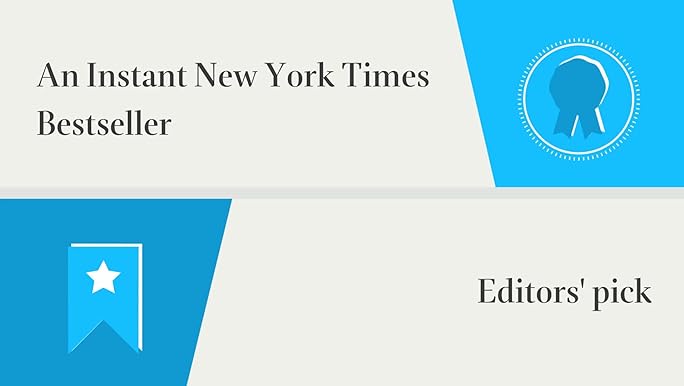
0:41
Click to play video

Humankind: A Hopeful History
Amazon Videos
About the authors

Erica is the founder of the language girl—a translation, editing, and copywriting firm that helps Dutch authors and organizations find their voice in English. Books include GRIP by Rick Pastoor with Elizabeth Manton, out this month from HarperCollins, and HUMANKIND: a Hopeful History, also with Elizabeth, out now from Bloomsbury and in a new paperback edition from Little, Brown.
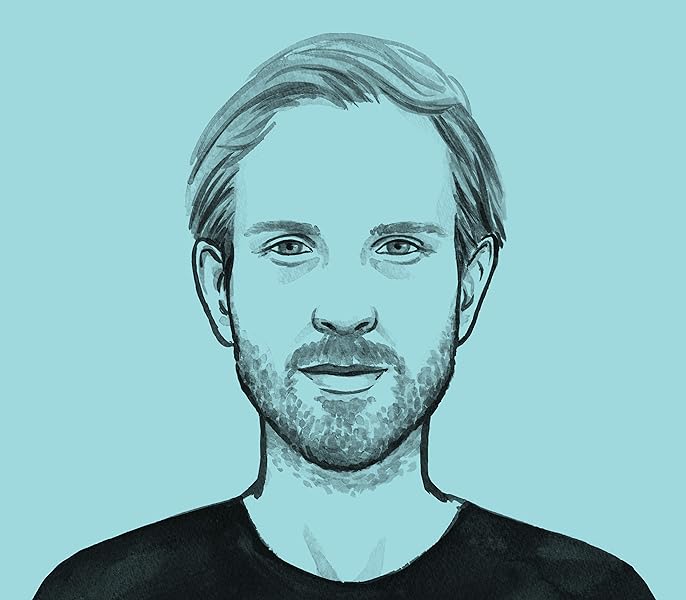
Rutger Bregman is one of Europe’s most prominent young thinkers. The 27-year-old historian and author has published four books on history, philosophy, and economics. His History of Progress was awarded the Belgian Liberales prize for best nonfiction book of 2013. The Dutch edition of Utopia for Realists became a national bestseller and sparked a basic income movement that soon made international headlines. Bregman has twice been nominated for the prestigious European Press Prize for his journalism work at The Correspondent. His work has been featured in The Washington Post and on the BBC.
Customer reviews
Customer Reviews, including Product Star Ratings help customers to learn more about the product and decide whether it is the right product for them.
To calculate the overall star rating and percentage breakdown by star, we don’t use a simple average. Instead, our system considers things like how recent a review is and if the reviewer bought the item on Amazon. It also analyzed reviews to verify trustworthiness.
Learn more how customers reviews work on AmazonReviews with images
-
Top reviews
Top reviews from the United States
There was a problem filtering reviews right now. Please try again later.
In the process of putting these theories to the test, Bregman takes us through a journey in which he studies the early studies of our nature, and found, not only had we been wrong, in some cases, we had been duped – for decades. Philip Zimbardo’s 1971 Stanford Prison experiment was the first to be dissected, not for the first time, but now, more fully, by Bregman. There is also the story of Kitty Genovese whose murder made headlines and entered the textbooks for psychologists until Bregman dug into the facts and evidence hidden from the press and thus, from society.
Bregman also studies man’s attitude to violence, and found astonishingly, that wars teach us many things – but we have often learnt the wrong ones. He explains in detail that, first, man is normally averse to violence, especially that which involves killing another human. Secondly, soldiers do not fight for flag or country, nor for leaders or ideology – they fight for their comrades.
From all these he learns that wars were not normal. We do not find wars depicted in cave paintings. They are all about community and animals, and hunting. From an extraordinary study of ‘The Lord of the Flies’ and its true-life counterpart of the schoolboys from Tonga who were marooned on the island of Ata.
Bregman leaves no stone unturned and he explains how he found how the hormone oxytocin is not only instrumental in making us fall in love, it also makes us wary of strangers; but our wariness of strangers, in days of old, was never a problem because once we stopped to say hello, strangers become friends. It is the digitalised old of technology that we no longer make real friends that should be worrying us.
As a spoiler, Bregman is inclined to believe that Rousseau is right, and that man is not inherently evil, and evil is far from banal. He advises us to keep going, but not to lay too much store in empathy, for empathy has a dark side. Rather, we should learn to be more compassionate. It is a hopeful book. He tries to emphasis that the more we give, the more we have, and to trust one another more. On the downside, one needs only look at what is fracturing the American society now to feel a little less positive; and on the macro side, to see how America is galvanising the world against China, and vice versa, to see that a lot more needs to be done to achieve universal trust.
This line from the book defines the core of what I grasped from Brugman’s writing style. The underlying intent of the book is to make us aware that yes, in a certain sense, he is writing a "propaganda piece"; he is spinning the narrative to promote his new realism. He is speaking of alternate facts to well-known truisms about human nature (we are always one small step away from lie, kill, cheat, steal). He is claiming that its time to get real: by seeing our fellow humans as friendly, helpful, kind, and peaceful, and, by spreading this news to others in real-time, we can shape a new reality though what he calls new realism. "The war is over, if you want it." But it won't end until we actively participate in forming such a reality.
What is this new realism? If you have read his Utopia for Realists you might be familiar with proposals for a shorter workweek; basic income; open borders. In Humankind, he opens up our personal borders and allows us to let others in. There is very little sentimental writing or empathetic reasoning. His is a new realism, yes. And this realism is so surprisingly realistic that it can easily seem idealistic. And he backs up his words with deep research.
He provides ample evidence that it can work and does work. His alternate facts are such that debunk others’ spun facts (see the original version vs Brugman's version of prison experiments, Lord of the Flies, Kitty Genovese). Bregman even calls out historians such as Harari and Diamond for weak research points. Where they seem to take for granted certain historical accounts, Bregman gracefully calls out where stories are born and he rewrites these myths. And they seem all the more realistic as he provides ample evidence for his case.
This is one of Harari’s central tropes: that we tell ourselves stories. We heard it on the news, we saw it on YouTube and ... even if we don't believe it is true... we are still right in the midst of it. The stories we tell ourselves created money, society, religions. Bregman says its time to tune out from the stories others form for us, to tune out from the harmful news and online activity and tune into what is right in front of us. And, as Harari (though still vegan and trim and stoic) and kin grow larger in fame…certain storylines will be formed just as a canal is formed; some will be true and some will form into myth. Bregman is a tributary of these recent giants in intuitive-intellectual presentation and has this reader/reviewer interested in the streaming waters of this newly dug out waterbed. Thinking of making my home in his waters. The great thing about all of these streams is that they are all headed in the right direction. They swim against the waters, struggling to get upstream…once there, they reach new islands that promote a better vision. Bregman’s stories may also become mythic once he rises in popularity, and he is not without critics. But in a cosmos of cluttered, divisive thought, his hopeful history is a welcome one.
This life stance of trusting others, seeing innocence before guilt, avoiding sensationalist news, personal gain…this has been my point of view throughout my life. Yes, at times I have been dominated, cheated, left behind, left bereft. But it has always felt true to me…it just seems realistic. “to believe people are hardwired to be kind isn’t sentimental or naive. ..it’s courageous and realistic to believe in peace and forgiveness.” I have been afraid to speak this point of view, fearful that this realism is too idealistic for our times. Brugman has helped me to internally articulate this position of “new realism” …now it’s time to let others know too.
I’ve always said that humans are at our core a social species, and if you start there, everything about us begins to make sense. I think that this book digs deep into what that really means and provides a great perspective for a better, more evolved world. Hopefully that world is the one we’re headed for!





